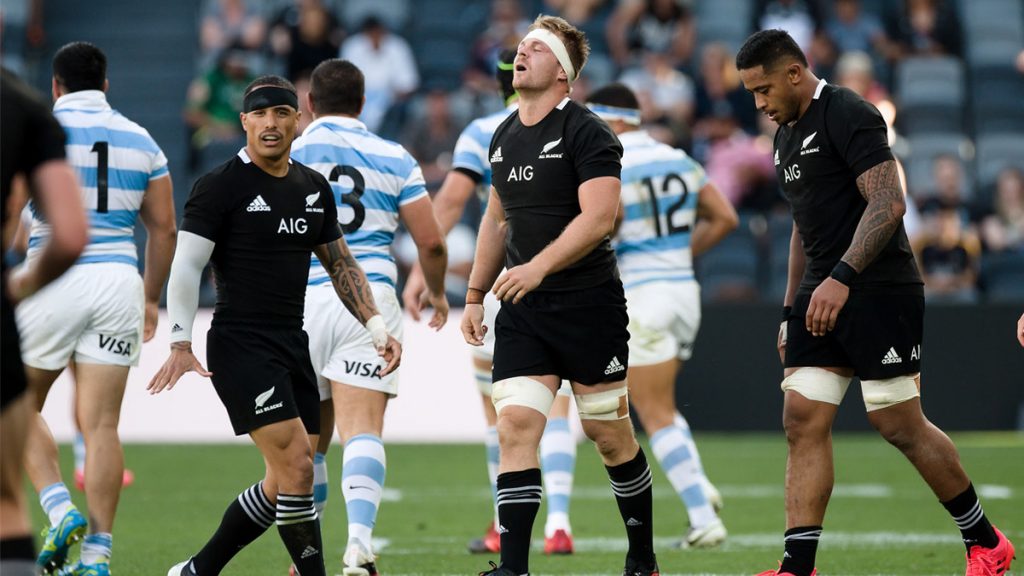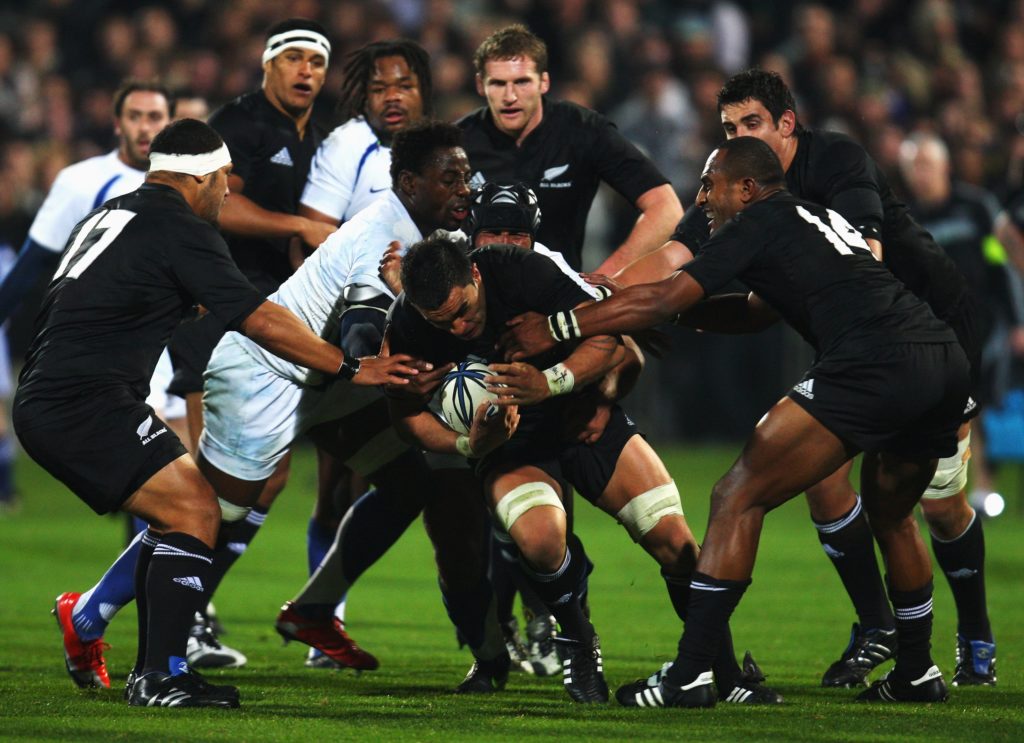As professional rugby players, we never go out on the park to lose.
We’re putting all the effort in during the week so that we can go out on Saturday to play to our best and do what we love to do – and sometimes we don’t get the result.
And while we don’t go out on the park to lose, neither does the other team.
I know from experience that the All Blacks train hard, they work incredibly hard off the field. They’ll dot their i’s and cross their t’s. But you’ve got to remember that there’s always another team doing the exact same thing. It’s sport, it happens. Only one team can come out on top and over the past few weeks, that team hasn’t been the All Blacks.
We’re incredibly lucky in New Zealand because the All Blacks don’t lose often. But when they do, the public always seem to be calling for a full-scale investigation.

I can tell you that no one is going to be more frustrated at the last two losses than the All Blacks themselves, and they’ll be doing everything they can to right the ship.
When you don’t lose often, you feel the losses even harder. Two of my most vivid memories playing for the All Blacks are two games we didn’t win.
The first, I’ve written about before. It was the 2014 game in South Africa when I gave away a penalty right near the end which they kicked to steal the match.
When things go wrong, you always look at your own performance more closely. You ask questions – ‘I wonder what would have happened if I’d done this? What if I hadn’t passed it here, or carried it here?’
At the end of the day, rugby is a team game. That penalty I conceded against South Africa was just three points out of 20-odd they scored but in the time and the moment, you forget that. You feel like you’ve let your team and your country down. I remember straight after the game, Steve Hansen came over and put his arm around me and gave me a big hug and just said ‘Na it’s not on you, it’s not your fault.’ You could probably tell from my vibe that I wasn’t feeling the best after that game.
I know from experience that the All Blacks train hard, they work incredibly hard off the field. They’ll dot their i’s and cross their t’s. But you’ve got to remember that there’s always another team doing the exact same thing.
But it’s an earlier game that was even tougher for me, one that I remember very clearly – and it came right at the start of my All Blacks career.
It was in 2009, when the French came to New Zealand for a two-match tour. We went into the first game as big favourites but France won the match 27-22. It was just my third cap for the All Blacks and I had a pretty average game, to put it lightly.
A lot of things didn’t go well for me – I fell off a few tackles, I probably didn’t put in enough back-to-back efforts – and I can remember it so clearly. Louis Picamoles was playing at No. 8 for France and I don’t even think he knows this, but every time I played him in the Top 14, I was always trying to get one up on him, just because of that one game in Dunedin that was a bit of a bump in the road for me.
I got ripped a new one by the coaches afterwards. I remember Steve used to be really, really tough on me, but I understand why he was now. He was just trying to help me be a better player.
At the time, I was like, ‘This guy hates me. This guy is always picking on me.’ But I eventually understood it. He was the forwards coach then and he was just trying to help get me to the right level and figure out what I needed to do to be an All Black.
The thing is, the coaches are never personally attacking you – that’s something Wayne Smith used to always say. They just want to help you get better and at the end of the day, they still love you.

Some players aren’t so good at taking criticism on board – I know that I had to learn how to deal with it. Some players might take coaches’ comments as a personal attack and think, ‘Oh, this bloke just doesn’t like me. He’s picking on me, it wasn’t my fault, it’s Player B’s fault.’ They’ll always make excuses and hide behind them. Other players will take the criticism and see it as an opportunity. But I know that it’s never personal.
But that test in 2009, it changed me. I’m so grateful for that failure because if I hadn’t had it then I wouldn’t have gotten tougher skin and gotten through tough moments later on.
When you lose with the All Blacks, the media jump on you and the public jump on you and I got that at a really early part of my career. I’ve never forgotten that failure because that’s what’s driven me and given me that flame in my belly to make sure it never happens again.
It probably took me a little while to recover from that game – but it’s shaped who I am as a player and person today.
You don’t actually want to experience a loss like that, but I think it will help you grow. You can see it as a bad thing, or you can try to find the positive in a situation. I think players these days, they have more of that mindset. They see a loss or a failure as an opportunity to get better and learn. They’ll still be disappointed, of course – it’s human nature. The All Blacks will learn from what’s happened, they’ll take it on the chin.
That doesn’t mean the criticism is justified. To be honest, I’d be surprised if many players read the media. When I was in that environment, players hardly ever got into that. But I do feel sorry for the families because they cop it as well.
I’ve never forgotten that failure because that’s what’s driven me and given me that flame in my belly to make sure it never happens again.
Family members read the papers and hear talk on the radio and whatnot. It’s really tough on them. I think the public can forget that we’re also human and we have family and friends that always have our back and support us, but they go through the hard times too.
I’ve even heard of cases where family members have been sitting in the stands and fans around them have started criticising the people they know out on the park. Those situations can get pretty heated.
It’s really difficult because for us as rugby players, we get support to go through tough situations – but family members don’t. They wear their heart on their sleeve.
Like I said, the All Blacks will hear a little bit of what’s been thrown around about them but it’s their loved ones that are really taking the brunt of the chatter – and the wider public probably don’t realise that.
But I’ve got faith we’ll bounce back. Losses are the best learning opportunities and I think this young All Blacks team will have taken plenty of lessons out of the past few weeks.



Comments
Join free and tell us what you really think!
Sign up for free